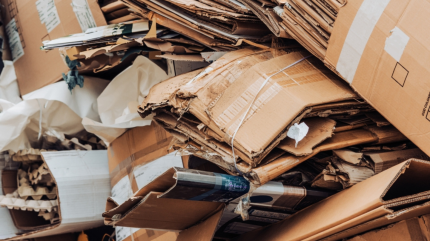
The UK government’s Department of Environment, Food and Rural Affairs (Defra) has released an “illustrative” fee base for its proposed extended producer responsibility (EPR) packaging initiative.
The EPR is a government policy that pushes supply chain packaging costs back to manufacturers. Under the EPR scheme, producers must report how much packaging they put into the market and pay associated rates per tonnage.
EPR fees will be charged on 1 April of each year, based on products supplied to the market the preceding calendar year.
To help provide sought after clarity from producers, the government has calculated the fees for eight packaging categories.
The higher end of the illustrative fees for packaging are £655 ($845) per tonne of aluminium or fibre-based composites, £350 per tonne of paper or board, $610 per tonne of plastic and £330 per tonne of glass.
The range of the estimated fees is notably wide as the lower estimate for aluminium is £245 per tonne, while plastic is £355 per tonne.
The government stressed that these fees are based on “best available evidence to date” and are subject to change.
“The illustrative fees have been calculated using different datasets to those the scheme administrator will use to calculate actual fees. They are being shared to provide as much information as early as possible, to best support producers,” Defra said.
The costs were determined according to the different ways of managing packaging waste. The glass fees are based on recycling costs due to the high levels of glass recycling, while aluminium fees are based on residual waste disposal costs associated with the low recycling rates for aluminium foil and non-drinks containers.
Moving forward, manufacturers are now obligated to report their “full set of 2023 household packaging data” by 1 April. If they do not do so by 31 May, they could face enforcement action.
Trade response
The release of the indicative fees for packaging has been met with mixed views from UK beverage trade associations.
The Wine and Spirit Trade Association CEO Miles Beale said: “The publication of indicative EPR fees has been long-awaited and severely delayed, which is why we have been calling for a delay to the introduction of fees.
“Sadly the provisional costs published today will do little to reassure the industry or provide a basis on which to plan – because the numbers are significantly higher than many have estimated, are not yet final and the indicative range is so great. We remain concerned that rushing the introduction of EPR will lead to failure, while simultaneously increasing costs and creating uncertainty for businesses.”
The British Soft Drinks Association welcomed the provisional EPR base fees.
A spokesperson for the trade body said: “We welcome the release of provisional Extended Producer Responsibility illustrative base fees, a move which was essential to help businesses forward plan for the scheme, and we now look forward to working with Defra to ensure the accuracy of waste reporting.
“It is vital that concerns about the household waste definition are addressed, as this currently disproportionately impacts SMEs by imposing burdensome and unnecessary requirements to prove packaging is exempt and will result in unfair costs being paid for product that is distributed to and disposed of by hospitality venues.”
The government said it expects to update the illustrative fees in September, when it has acquired more data.



